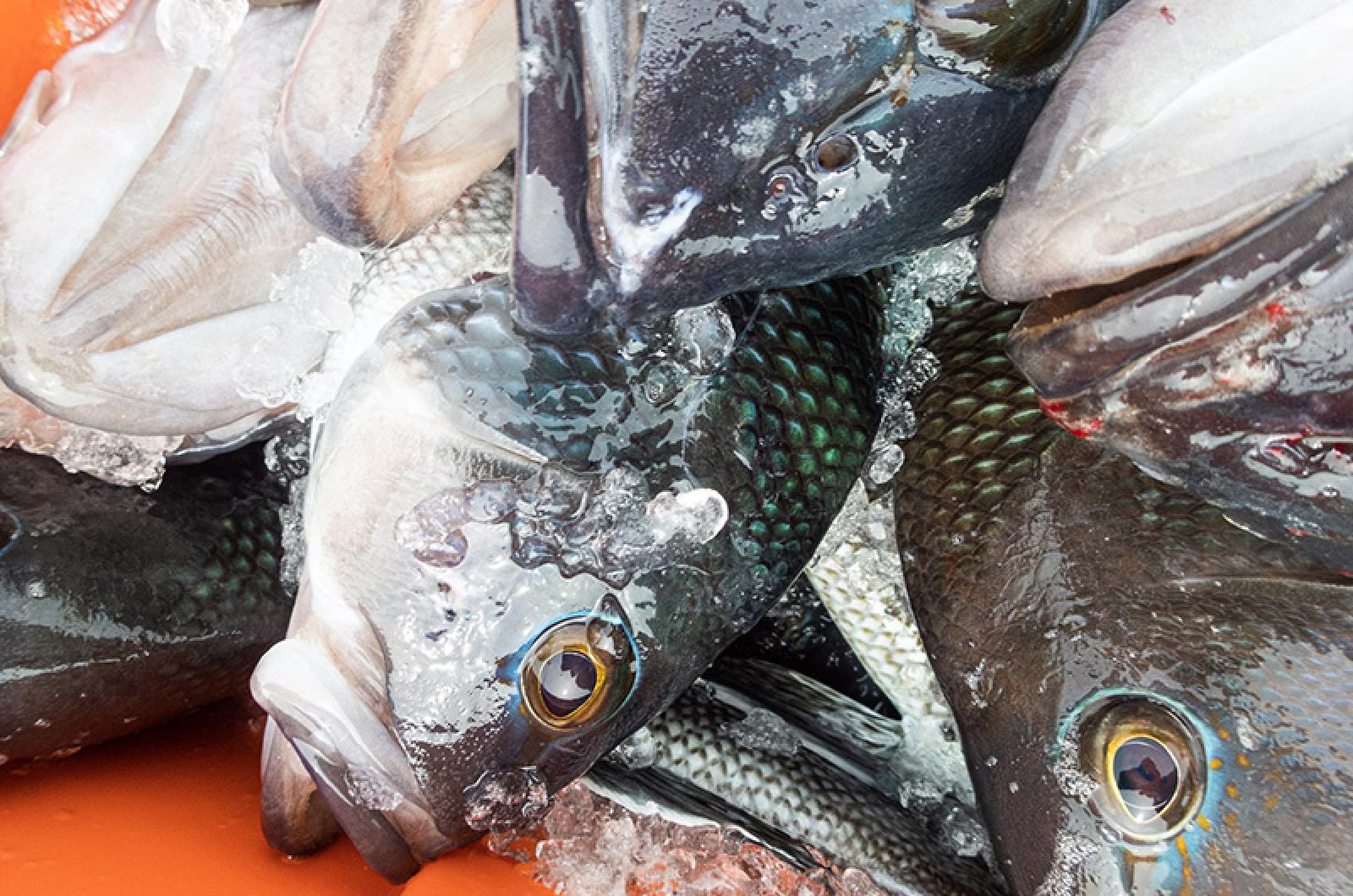The Martha’s Vineyard Fishermen’s Preservation Trust will begin distributing fish stew and chowder through its community seafood program this week, trust officials confirmed, marking the final leg of the organization’s project to buy, process and donate black sea bass and scup chowder for the community.
The program, which will distribute the soup to food equity programs on the Island, is funded by a $406,000 grant from Catch Together, a nonprofit that supports fishing communities and ocean conservation across the country.
According to a recent press release, the organization has processed 6,500 containers of sea bass stew and over 16,000 containers of chowder so far, with plans for more on the horizon.
Reached by phone Monday, program manager Peter Lambos said Island distributions will begin this Friday.
“We’re pretty excited,” Mr. Lambos said. “[The program] has really reached the whole fishing industry from the fishermen to the buyers and the processors and then to the customer, which in this case, is all donations.”
The community seafood program was established last spring by the fishermen’s preservation trust — an Island nonprofit devoted to preserving the Island’s local fleet — as a way to support independent fishermen through the pandemic.
As a shrunken demand for local seafood among regional wholesalers and restaurants drove market prices down and created large surpluses of valuable catch, the fishing nonprofit thought up a plan to kill two birds with one stone.
“The market wasn’t there . . . and then with people being out of work there was also a huge issue with food insecurity,” Mr. Lambos said. “The grant was put together to serve those two needs — to keep people fishing and to feed people that need food.”
The program launched last April with 200 pounds of scallop donations, but grew rapidly, donating 2,000 pounds of scallops to six Island food programs, including Island Food Pantry, Good Shepherd Parish and the Emergency Food Program, by the end of the season.
In August, the trust received funding from Catch Together to expand the program to black sea bass and scup, with plans to buy catch from local fishermen at 25 cents over market value and process it into chowder for community donations.
In total, the trust was able to purchase 40,000 pounds of black sea bass and 2,500 pounds of scup from 45 fishermen this fall — enough for nearly 50,000 containers of soup and over 110,000 meals by the project’s conclusion, Mr. Lambos said.
The group had used entirely local channels to buy and process the fish, Mr. Lambos said, partnering with local buyers like Red’s Best and Ocean Seastar, as well as the Lowell-based processing company, the Plenus Group. The trust also offered fuel stipends for participating fishermen, he said.
“We just wanted to raise awareness that there are still working fishermen on the Island . . . and to make sure people know that they definitely need support,” Mr. Lambos said. “And not just in donations, but making sure that people support their local fishermen by buying local fish.”
This week, the seafood project will reach its final leg as distribution to the Island’s various food support organizations begins.
Mr. Lambos said the trust plans to distribute cases of chowder to Island Grown Initiative and the food pantry, the Boys and Girls Club, and Serving Hands, as well as religious organizations like the Good Shepherd Parish and the First Congregational Church of West Tisbury.
The trust plans to store additional stock in Menemsha for future distribution, Mr. Lambos said, while excess chowders that couldn’t be stored on-Island have been sent to mainland organizations, including the Greater Boston Food Bank and the United Way in New Bedford.
“We think we’ll have enough to meet the demand of [Island food] organizations into the late fall,” Mr. Lambos said.
The trust’s seafood program will officially conclude after the chowder is distributed, but plans for similar initiatives are already on the horizon, Mr. Lambos said, particularly as the trust launches its latest project — a seafood collaborative to bring wholesaling back to Menemsha.
We’re going to be on the lookout for future grant programs,” Mr. Lambos said, turning reflective. “We have this fishing industry that is one of the pillars of Island life here . . . It’s a part of our community that we really want to hold on to.”







Comments (7)
Comments
Comment policy »